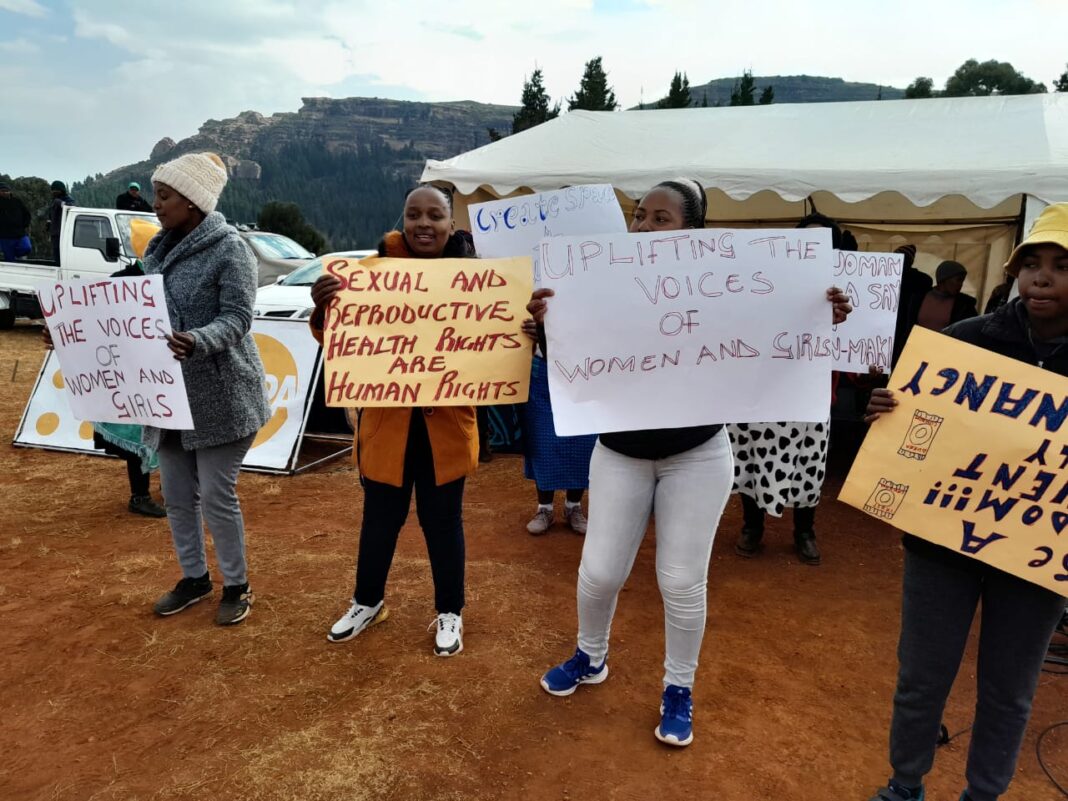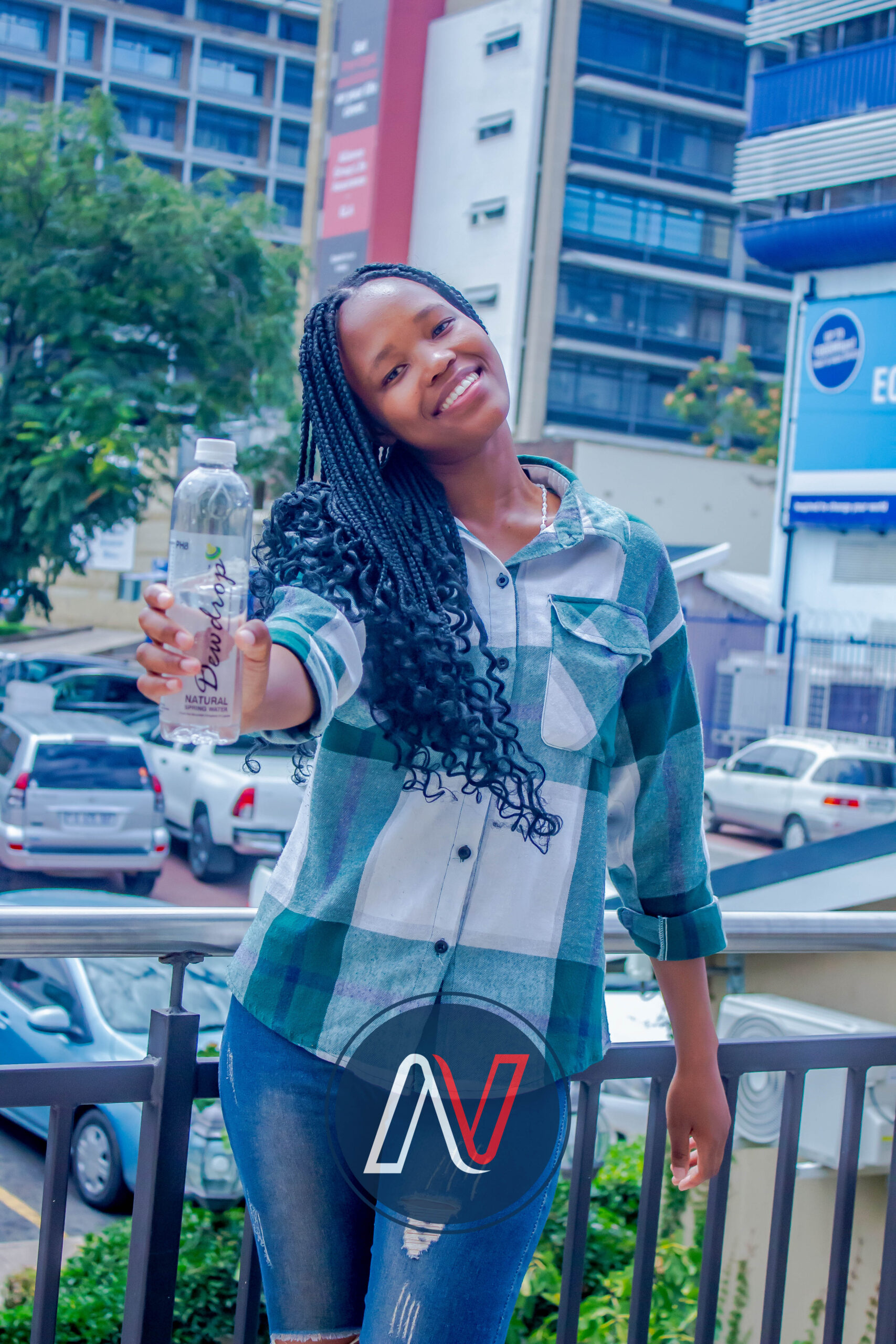Ntsoaki Motaung
Adolescent girls and young women in the community of Ha Khabo are speaking out against the lack of access to sexual and reproductive health (SRH) services, attributing the issue to prevailing cultural beliefs and norms that hinder progress.
During a three-day workshop supported by the United Nations Population Fund (UNFPA) ahead of World Population Day, community members shed light on the challenges faced when seeking SRH services.
CULTURAL BELIEFS FUEL STIGMA AND DISCRIMINATION
Participants in the workshop highlighted how deep-rooted cultural beliefs and norms have created stigma and discrimination surrounding SRHR services, particularly for adolescent girls and young women.
Many parents and elderly individuals still adhere to traditional norms that are not aligned with modern-day realities.
19-year-old ‘Mathibeli Khetheng expressed her concern about the discomfort girls face when trying to access family planning services due to cultural misconceptions.
“There are still parents who deny their children access to family planning, especially male parents. In the past, girls were not expected to engage in sexual activities, and therefore, family planning was not considered necessary,†Khetheng said.
“However, times have changed, and girls need protection from early pregnancies,†she added.
HEALTH CENTERS AND PROFESSIONALS’ ROLE
The challenges faced by adolescent girls and young women extend to health centers as well. Some health professionals’ attitudes towards adolescents attempting to access family planning contribute to a reluctance to seek help or discuss their needs fully.
Khetheng highlighted that negative experiences with health professionals discourage many girls from returning to health centers for follow-up services or to discuss their concerns openly.
WORLD POPULATION DAY AND FOCUS ON GENDER EQUALITY
The annual World Population Day, commemorated globally on July 11th under the theme, ‘Unleashing the power of gender equality: Uplifting the Voices of Women and Girls to Unlock Our World’s Infinite Possibilities,’ was identified as an opportunity to address the challenges faced by girls and young women in Ha Khabo.
The day was commemorated yesterday in Lesotho.
EMPOWERING WOMEN AND GIRLS
The National Programme Analyst for Adolescents and Youth, ‘Maseretse Ratia, stressed the importance of prioritising gender equality to address the challenges faced by women and girls, including sexual harassment and early marriages.
Ratia emphasised the need to train community members, including leaders, to understand sexual and reproductive health rights and the significance of considering the opinions of girls and young women.
“Some of the challenges facing women include sexual harassment. Harassment happens when a girl or a woman says no to sex but their counterparts do not listen,†she said.
“If women and girls were listened to, we would not be talking about sexual harassment in the country. We would not have early marriages which are sometimes organised by parents,†she added.
PREVENTING UNINTENDED PREGNANCIES AND EMPOWERING WOMEN
Speaking during the launch of the annual UNFPA flagship report, whose theme last year was ‘Seeing the Unseen: The Case for Action in the Neglected Crisis of Unintended Pregnancy,’ Dr. Marc Derveeuw, former UNFPA representative to Lesotho, underscored the importance of prioritizing prevention of unintended pregnancies, which he said were preventable with proper education about sexuality and reproductive health.
Dr. Derveeuw called for investment in newer contraceptive methods, reduced gender inequality, and increased access to education and employment opportunities for women and girls to empower them to make affirmative decisions about their sexuality and motherhood.
Summary
- Adolescent girls and young women in the community of Ha Khabo are speaking out against the lack of access to sexual and reproductive health (SRH) services, attributing the issue to prevailing cultural beliefs and norms that hinder progress.
- Uplifting the Voices of Women and Girls to Unlock Our World’s Infinite Possibilities,’ was identified as an opportunity to address the challenges faced by girls and young women in Ha Khabo.
- Ratia emphasised the need to train community members, including leaders, to understand sexual and reproductive health rights and the significance of considering the opinions of girls and young women.

Your Trusted Source for News and Insights in Lesotho!
At Newsday Media, we are passionate about delivering accurate, timely, and engaging news and multimedia content to our diverse audience. Founded with the vision of revolutionizing the media landscape in Lesotho, we have grown into a leading hybrid media company that blends traditional journalism with innovative digital platforms.






